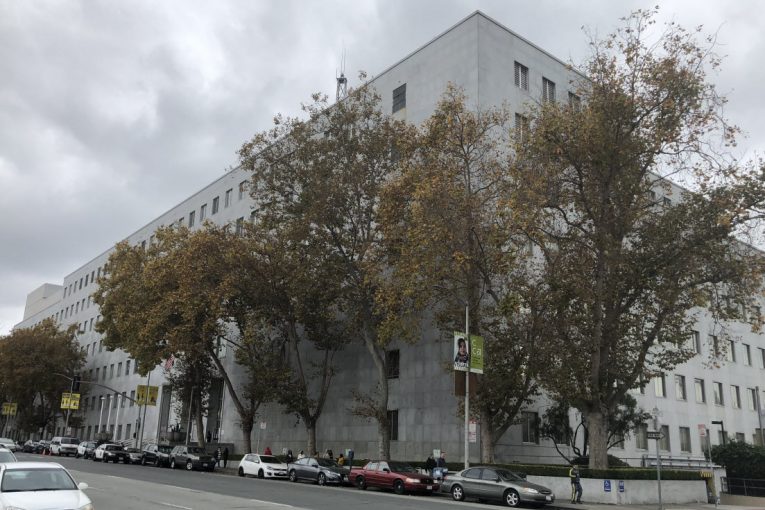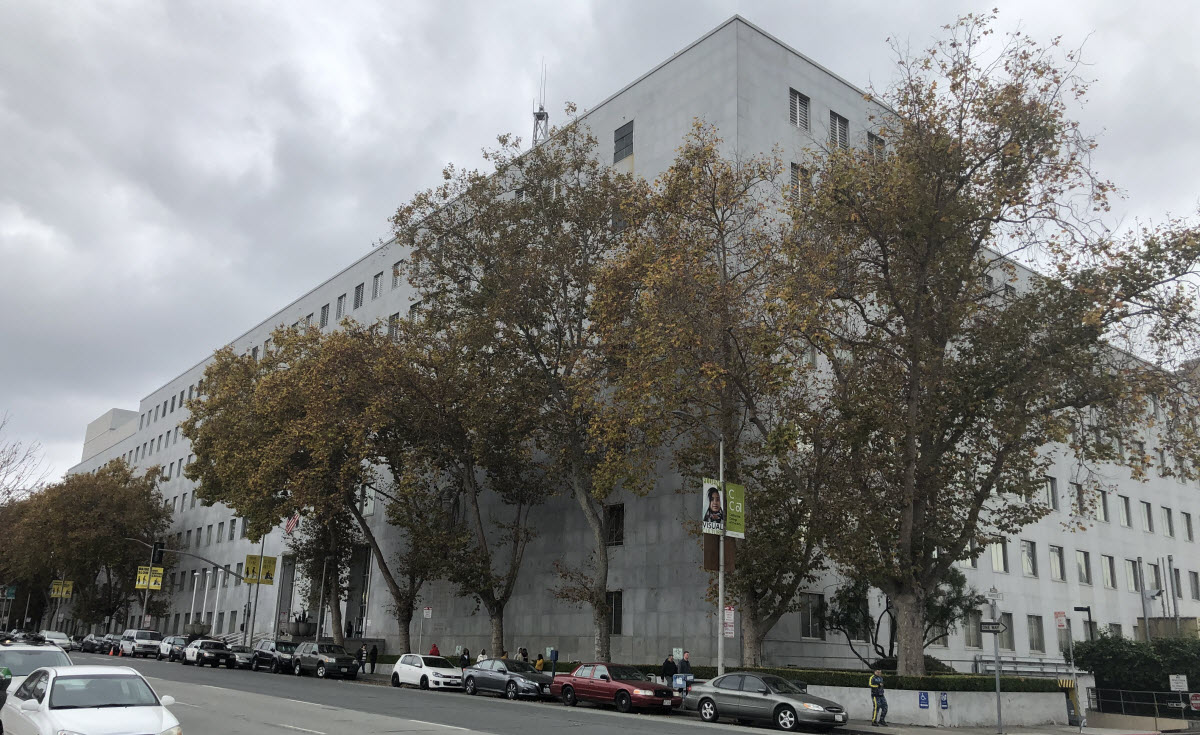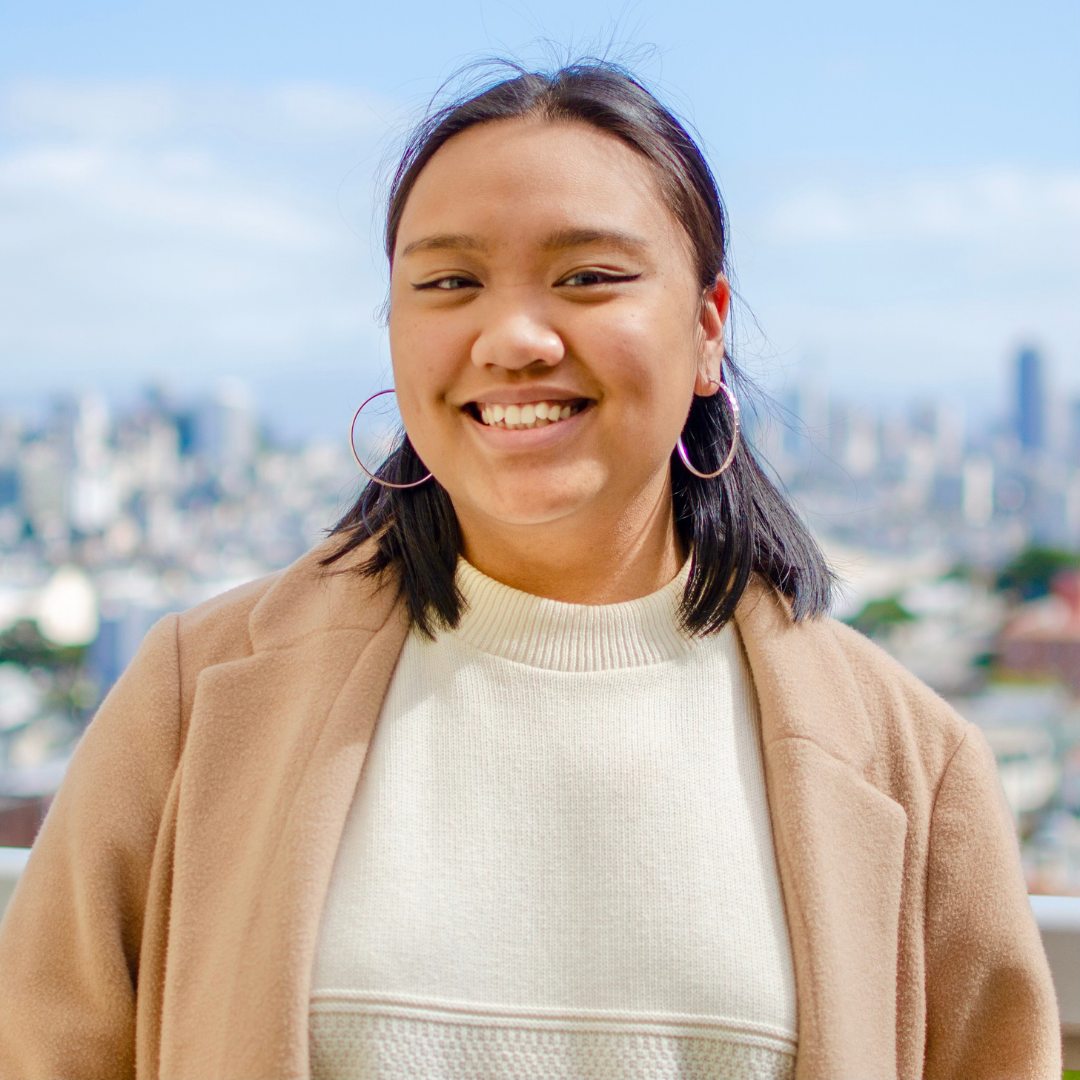

By S. Priana Aquino
SAN FRANCISCO, CA— Throughout the pandemic, San Francisco has been a positive example for how to effectively prevent the spread of COVID-19.
With no large outbreaks and the number of cases kept to a small number, it is no surprise that much of SF seems to have gone back to how it was in early March of 2020.
Though in person criminal court appearances are another sign of heading in the right direction, the entirety of SF’s superior court system has a long way to go before being truly back to normal.
Last Friday, Judge Loretta M. Giorgi presided over Dept. 22 and set a number of trials back as late as Nov. 11. Many who were waiting in the gallery for their cases to be called expressed annoyance of having to return much later than they had hoped.
In a routine statement given to everyone who appeared in person, Giorgi informed them of the long “queue” of cases that had to be heard. 
“Since reopening the courts we have 358 felony no time waiver trials with 172 defendants in custody,” said the judge. “There are 229 misdemeanor no time waiver trials with 43 defendants in custody.”
Giorgi repeated these numbers and told attorney’s that to have their client be heard, they would have to discuss it with the other 600 people in line before them.
At one point, there was a glimmer of hope for a possible early trial date for defendant Demarco Leviene. It was the only case up until that point that, according to the judge, was high in the queue.
However, Giorgi took back this statement quickly, saying that she had been looking at the wrong year. This meant even more time would pass before Leviene’s trial could happen.
Public Defender Jared Rudolph, was another attorney trying to advocate for an early release date for their client, DeShon Marmon. With the trial date set on July 23, Rudolph continued to find an even earlier time to have his client’s case heard, especially since Marmon had been waiting for so long.
“The trial calendars are a 100 lines long,” said Judge Giorgi, who commented that though having an earlier date would be a “feel good” thing, it was simply not possible.
“I’m not trying to do anything to feel good,” said Rudolph. “I’m just trying to make it happen.”
While some attorneys and defendants are present, there are still many that appear over Zoom, with their boxes shown in a T.V. facing the judge.
This online system was relied on for a year and a half but yet it is still not the most dependable way to hold hearings. At one point during the proceedings, District Attorney Leslie Cogan’s mike abruptly cut out.
Though it did not take her long to get reconnected to audio, those few minutes Cogan spent add up to the time taken away by Zoom issues that occur throughout the courthouse each day. Technology is faulty and uncontrollable. External factors such as this only aid in the increase of time delays, and further hinder the efficiency of cases being heard.
While these delays are chalked up to be simply an effect of the pandemic, the amount of diligent work needed to overcome the negative impact they have on citizens is insurmountable.
Last month, San Francisco Public Defender, Mano Raju, published a piece in the SF Examiner on the delay of accessibility in the courtroom. “Here in San Francisco, over 100 people are still languishing in jail awaiting trial past the last day in which they must be legally brought to trial — the majority have been waiting over a month, and some for many months past their deadlines,” Raju wrote.
“The unlawful pretrial incarceration of hundreds of people, who are presumed innocent, is not just a matter of moral, ethical, and human rights — San Francisco Courts are flagrantly violating the law,” he charged.
Raju also points out that this issue is unique to San Francisco. “Contra Costa has held 103 jury trials since May 2020. Sacramento has held at least 118 trials since mid-March 2020. In contrast, San Francisco has held only 10 criminal jury trials in the past year, nearly 10 times less than these peer counties,” writes the Public Defender.
These large numbers of unheard cases are a clear indicator that changes need to be made.
Raju suggests opening up more courtrooms, and increasing the accessibility of watching trials over a Youtube livestream -used by many counties, but for some reason, the high tech capital of the world has not managed to utilize.
To sign up for our new newsletter – Everyday Injustice – https://tinyurl.com/yyultcf9
Support our work – to become a sustaining at $5 – $10- $25 per month hit the link:





